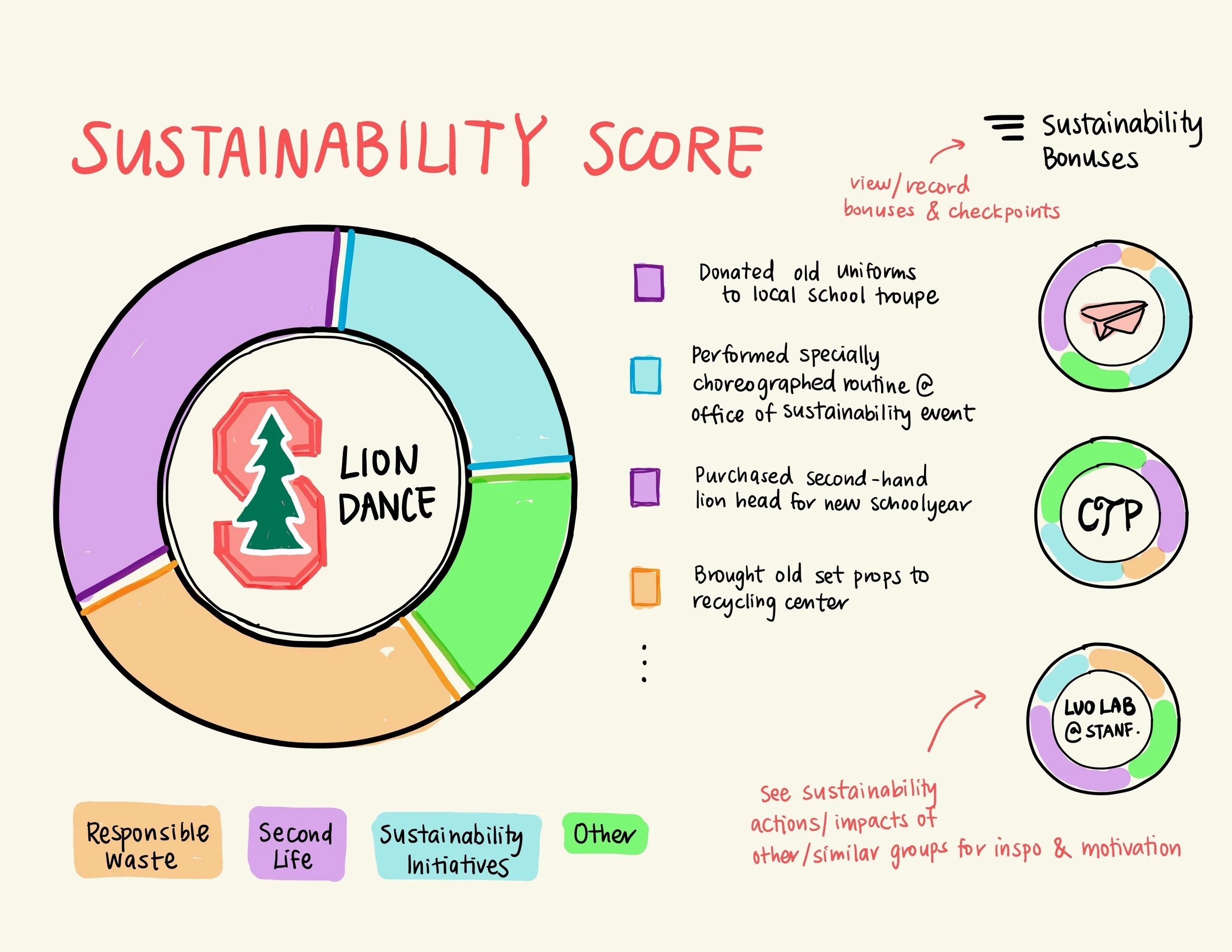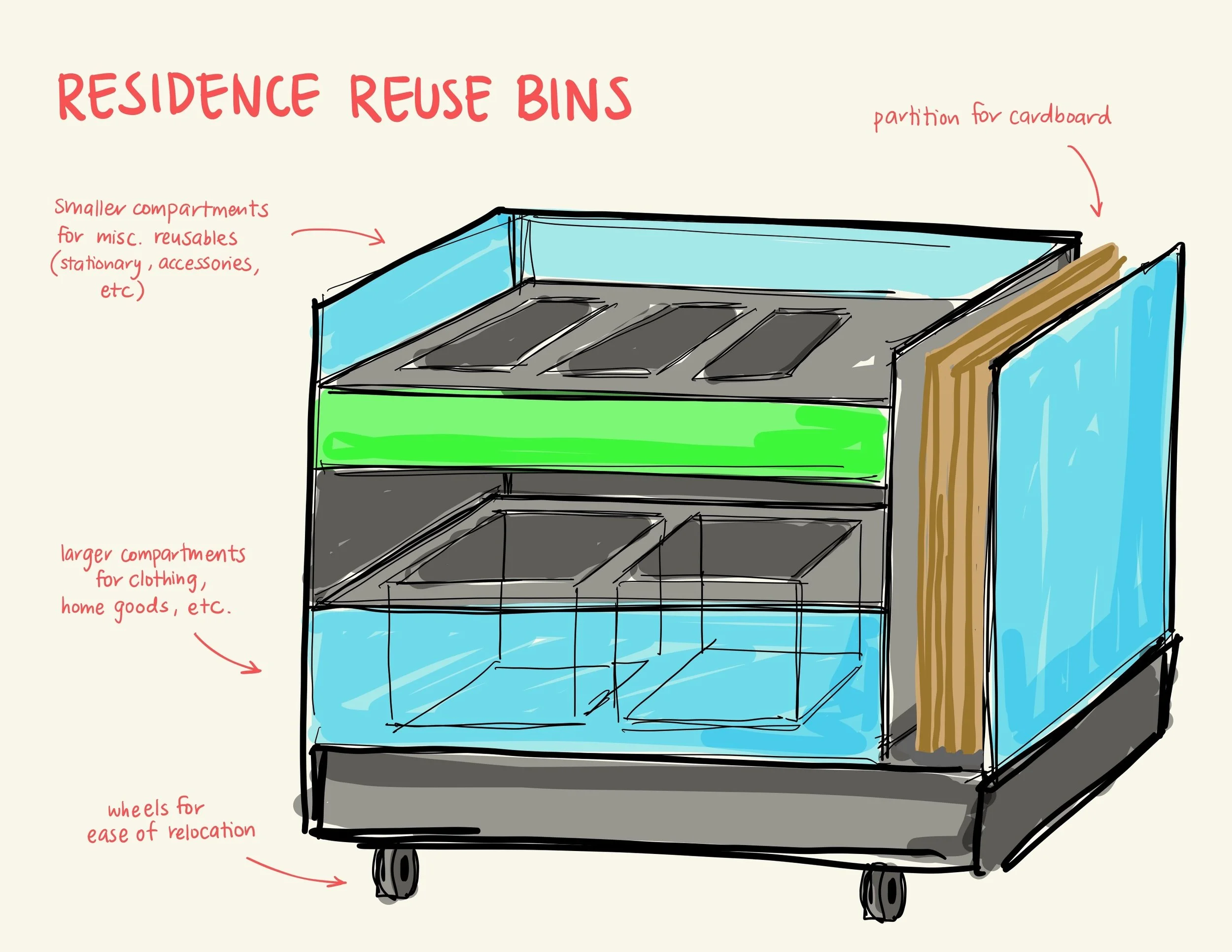ZERO WASTE
X DESIGN 1
COURSE:
DESIGN 1: Introduction to Design
TEAM:
Emma Zhao
TOOLS & SKILLS:
Procreate, Interview clustering, Data-driven insights
TIMELINE:
Fall 2024, 1 week
The Assignment:
How can we design to change the norms, influence, and perceptions which shape our choices?
Stanford aims to reach zero waste—defined as 90% diversion from landfill—by 2030, but its current rate has remained around 60–65% for two decades. This project asked us to investigate why recyclable and compostable materials still end up in landfill, and how habits and social norms shape waste behavior.
Using interviews and contextual research from Stanford-collected data and initiatives, we identified insights and reframed the problem to uncover new design opportunities. We then proposed original interventions to help shift behaviors and support Stanford’s Zero Waste goals.
Transparent recycling bins feature a plexiglass front that allows users and passersby to see their contents, fostering a visible and collective effort toward proper recycling. By showing others’ decisions, they encourage a sense of shared responsibility and community motivation to keep bins uncontaminated.
With recycling contamination at 10% and over 25% of trash being recyclable, this intervention aims to shift more recyclable material into the correct bin while reducing mistakes in recycling.
The Sustainability Score is an opt-in system for student and faculty groups to track their positive contributions to sustainability—such as responsible waste practices, reusing or donating items, and initiating campus-wide environmental efforts. By self-reporting actions and engaging with other groups’ progress, participants build a sense of shared identity across disciplines.
Ultimately, this initiative aims to embed sustainability into group cultures, so that individuals feel more confident and motivated to make informed choices on their own.
Residence Reuse Bins are shared stations placed in residential spaces across campus where students can donate and adopt reusable items like clothing, books, or cardboard. Inspired by the d.school’s cardboard reuse bins, these stations make it easier to give items a second life without the effort of coordinating exchanges.
This solution taps into the instinctive habit of reuse, offering a low-friction way for students to contribute to sustainability without needing to adopt new systems or mindsets.








